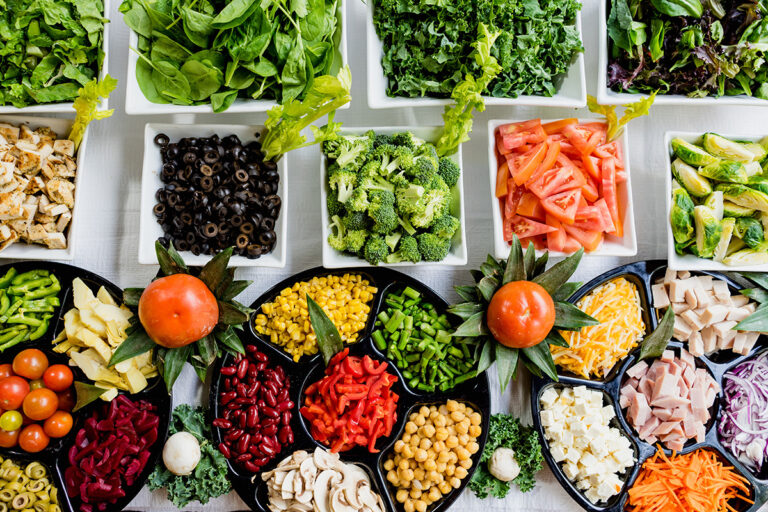Substance abuse, a critical aspect of broader substance use disorders, has long been a debilitating problem for millions worldwide and the road to recovery is often a difficult and prolonged journey. The body and mind undergo immense transformations, with detox being a critical initial phase that clears the body of toxins, followed by withdrawal and coping with emotional triggers, and nutrition plays a pivotal role in rebuilding a stable and healthy foundation. This article will explore the significance of proper nutrition in addiction recovery, and how adopting a balanced diet can improve overall well-being, increase the chances of successful rehabilitation, and prevent relapse.
Substance Abuse and Nutrient Deficiencies
Years of substance abuse can inflict serious damage upon an individual’s health, progressively eroding the body’s ability to absorb and process essential nutrients. As the body becomes more and more deprived of vital vitamins, minerals, and macronutrients, physical and mental health begins to deteriorate at an alarming rate.
Malnutrition is a common occurrence in substance abusers, often due to a combination of poor dietary intake, vomiting, diarrhea, and altered metabolism. In particular, those struggling with alcohol addiction are highly susceptible to nutrient deficiencies due to their alcohol use, impairing the absorption of essential nutrients, as frequent alcohol consumption impairs the absorption of essential nutrients, such as B vitamins, and can lead to vitamin deficiencies that cause anemia, nerve damage, and cognitive problems. Furthermore, individuals addicted to stimulants and drugs, such as opioids and amphetamines, may experience significant weight loss due to changes in appetite, leading to further nutritional deficiencies.
Statistic Source: According to the National Institute on Alcohol Abuse and Alcoholism, around 20-50% of people dependent on alcohol have clinical malnutrition with deficient intake of micronutrients and macronutrients.
The Role of Nutrition in Addiction Recovery
Nutrition plays a vital role in the overall recovery process, especially in managing cravings commonly experienced during addiction recovery as the body needs an adequate supply of a broad spectrum of nutrients to heal, support detox processes, prevent relapse, and maintain sobriety long-term. Some of the key areas influenced by proper nutrition in addiction recovery include:
Do you have a loved one struggling with addiction?
We know how hard that can be. Give us a call to find out what options you have.
- Physical Health: A balanced diet, rich in antioxidants and essential nutrients like vitamin C from fruits like oranges, strawberries, and bell peppers, helps to repair the damage caused by substance abuse, combat oxidative stress, and strengthen the body, enabling it to function optimally. Individuals in recovery often experience gastrointestinal issues, such as constipation or diarrhea. A diet that includes fiber-rich foods, probiotics, and ample hydration can alleviate these symptoms, improving gastrointestinal health and facilitating the body’s healing process
- Mental Health: Adequate nutrition supports cognitive function, mood stabilization, and stress management, by aiding the production of neurotransmitters such as dopamine and serotonin, crucial for emotional well-being. Consuming essential nutrients, such as omega-3 fatty acids and amino acids, can help repair neurotransmitter imbalances, alleviate depression and anxiety, and improve overall mental wellness.
- Energy Levels: Proper nutrition, including adequate intake of carbs as a primary energy source, is crucial for sustained energy levels throughout the day – which can significantly affect an individual’s engagement in recovery activities and overall motivation. Consuming regular meals and snacks containing complex carbohydrates, lean proteins, and healthy fats can help maintain energy levels and prevent fatigue.
- Immune System: A balanced diet helps reestablish a strong immune system, which has often been weakened by years of substance abuse. Consuming foods high in vitamin A, such as carrots, sweet potatoes, and leafy greens, alongside a wide range of fruits, vegetables, and protein sources, can bolster immune function and aid in the recovery process.
Nutritional Guidelines for Addiction Recovery
A well-rounded diet is the cornerstone of nutritional therapy in addiction recovery, and the following guidelines can be considered:
- Maintain a balanced diet: Ensure an adequate intake of essential micronutrients and macronutrients by incorporating nutrient-rich whole foods, including leafy greens, beans, and peas, which are high in folic acid, into daily meals alongside lean proteins, whole grains, fruits, vegetables, and healthy fats.
- Stay Hydrated: Drinking plenty of water and consuming a diet low in sodium but rich in potassium can help in maintaining healthy blood pressure levels, aiding with digestion, and preventing dehydration.
- Opt for regular meals and snacks: Consuming smaller, more frequent meals can help regulate blood sugar levels, boost energy, support a healthy metabolism, and importantly, help manage cravings often encountered during recovery
- Avoid excessive sugar and caffeine: Limiting sugary, processed foods and caffeinated beverages can help naturally stabilize mood and energy levels without causing unhealthy crashes or spikes.
- Consider supplementing: Nutrient deficiencies may require supplementation with vitamins and minerals to help restore optimal levels and promote overall health. Examples could be a calcium supplement for supporting bone strength, magnesium for energy and muscle function, or electrolytes for supporting hydration and sodium balance.
It is important to note that nutritional needs are individualized, and seeking guidance from a healthcare professional or registered dietitian is always recommended to ensure that an appropriate diet plan is tailored to personal requirements.
Conclusion
The importance of nutrition and sticking to a healthy diet in addiction treatment and recovery should not be underestimated, as it is a crucial component of holistic care and rehabilitation. A balanced diet can help individuals regain their health, strengthen their bodies, and support mental wellness on their journey to overcoming substance abuse. Emphasizing proper nutrition during addiction recovery will empower individuals to maintain lasting sobriety and achieve a higher quality of life in the long term.




